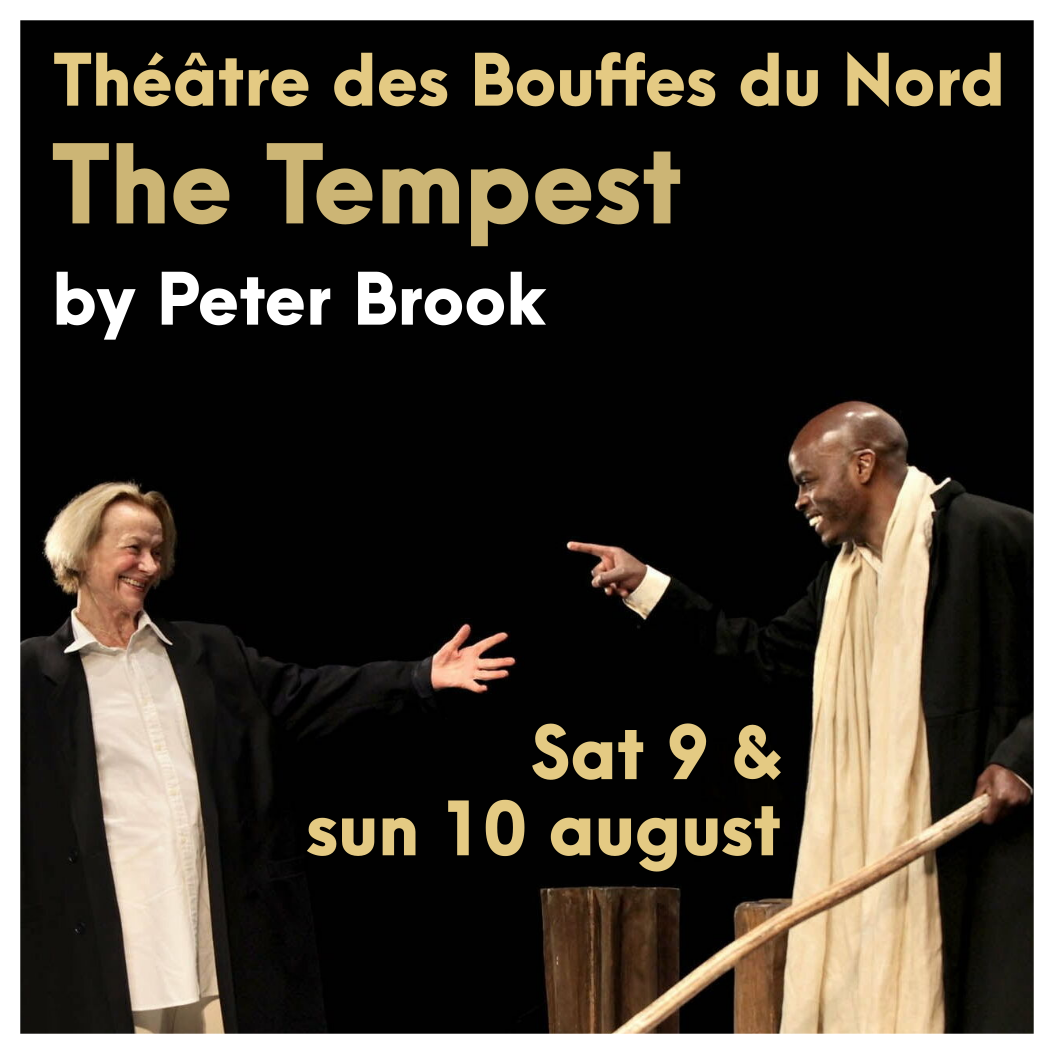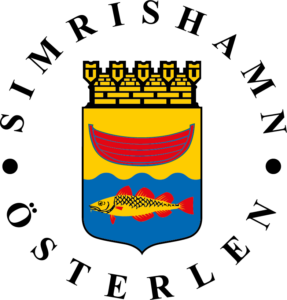
“The Tempest” by Shakespeare in the adaptation created by the iconic, world-renowned British director Peter Brook is one of the most famous adaptations worldwide of this classic tale. The Tempest is an enigma, a fable where nothing can be taken literally, because, if we stay on the surface of the play, its inner quality escapes us. For the actors, as well as for the audience, it is a play that reveals itself by playing it. It’s like Music.
Peter Brook was born in London in 1925. Throughout his career, he distinguished himself in various genres: theatre, opera, cinema and writing. He directed his first play there in 1943. He then went on to direct over 70 productions in London, Paris and New York.
The text “Tempest project”, adapted by Peter Brook and Marie-Hélène Estienne from Jean-Claude Carrière’s French version of The Tempest by William Shakespeare, was published in November 2020 by Actes Sud-Papiers
I anslutning till föreställningarna är Skillinge Teaters Restaurang och ginbar öppna:
Fredag och lördag 17 – 20.00
Boka gärna bord här:
Lighting
Philippe Vialatte
Songs
Harué Momoyama
With
Sylvain Levitte
Paula Luna
Fabio Maniglio
Luca Maniglio
Marilù Marini
Ery Nzaramba
När: Lördag 9 och söndag 10 august
Var: stora teatersalen inomhus
När: Restaurangen och gin baren öppnar 17.00
Föreställningen startar 19.30 och pågår i 90 minuter utan paus
Biljetter: SEK 765
Välkommen till detta helt unika gästspel med av en Europas mest omtalade och erkända föreställningar – Peter Brooks bearbetning av THE TEMPEST (Stormen) av Shakespeare.
Peter Brook är en av världens mest omtalade och mest banbrytande regissörer. Han lämnade världen med ett rikt arv av underbara scenkonstverk. Hans sista teaterstycke, The Tempest Project har blivit en ikoniskt teateruppsättning som definierats som den bästa tolkningen, någonsin, av detta klassiska drama. Föreställningen framförs av Peter Brooks eget kompani Théâtre des Bouffes du Nord som annars har sin hemscen i den formidabla byggnaden mitt i centrala Paris.
“Peter Brook’s influence on the world of theatre cannot be understated.
Brook has continually pushed the boundaries of what theatre can achieve”.
Detta gästspel ger en unik möjlighet för Skillinge Teaters publik att få uppleva en ikonisk uppsättning, en hyllning till denne teatergigants konstnärliga geni.
Föreställningen spelas på franska med engelsk textning.
A play stemming from a research on The Tempest by William Shakespeare Adaptation and stage direction Peter Brook and Marie-Hélène Estienne.
Production Centre International de Créations Théâtrales / Théâtre des Bouffes du Nord
Coproduction
Théâtre Gérard Philipe, centre dramatique national de Saint-Denis ;
Scène nationale Carré-Colonnes Bordeaux Métropole ;
Le Théâtre de Saint-Quentin-en-Yvelines – Scène Nationale ;
Le Carreau – Scène nationale de Forbach et de l’Est mosellan ; Teatro Stabile del Veneto ;
Cercle des partenaires des Bouffes du Nord.
Med stöd av:


